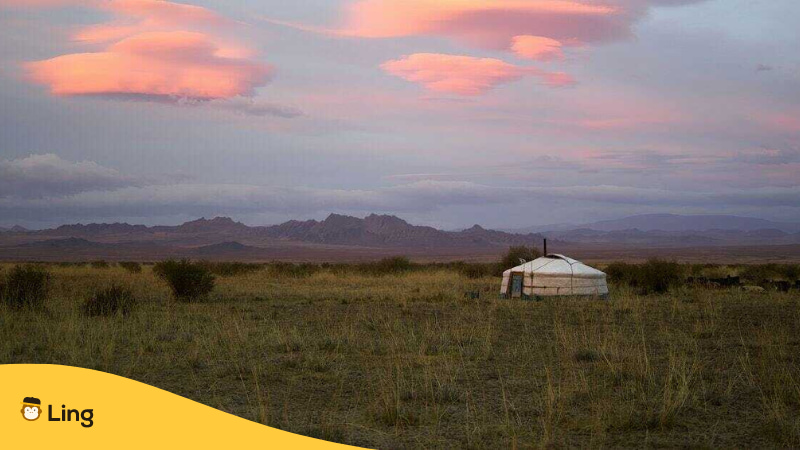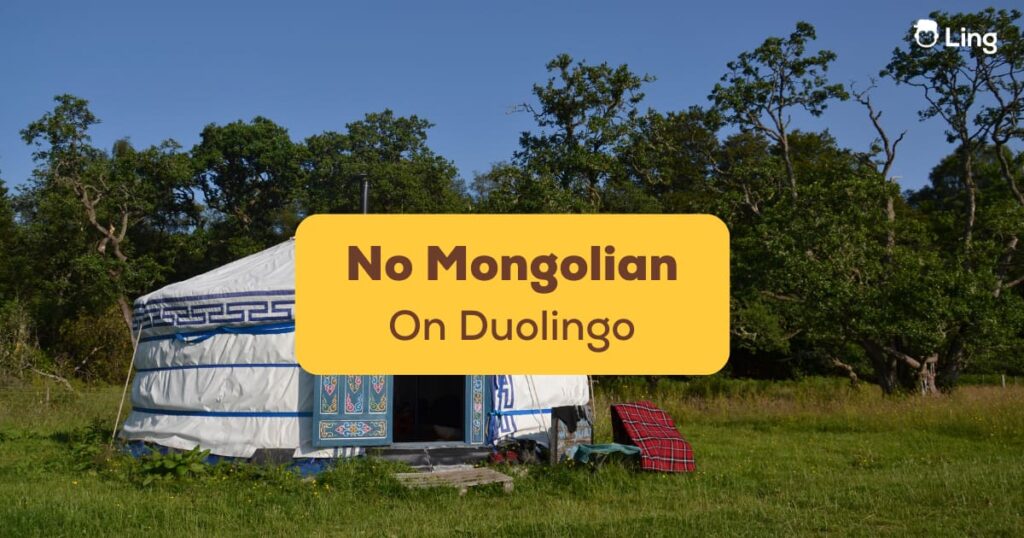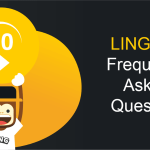Here at Ling, when we first discovered that there was no Mongolian on Duolingo, we were shocked. The Mongolian people produced some of the most famous rulers of all time, including Genghis Khan and his grandson Kublai Khan.
At the height of the empire, they ruled over a 23million km² section of land. Today we’ll look at why there’s no Mongolian on Duolingo. Why you should learn Mongolian. And what are the alternatives for learning it?
Why Is There No Mongolian On Duolingo?
- Although Mongolia is gigantic geographically(1.564 million km²), it has a comparatively small number of speakers (5-7 million). That difference makes Mongolia the least densely populated area in the world. Duolingo prefers to focus on languages with a lot of speakers, like Mandarin and Russian. The only smaller languages Duolingo is committed to being on the verge of extinction.
- Mongolian is notoriously difficult to learn because it has a Cyrillic script. Also, Learners constantly complain about how complex the pronunciation is, so there’s a higher dropout rate.
- Up until relatively recently, there was a lack of supplementary materials for the language.
Some Background On The Mongolian Language
Where Is Mongolian Spoken?
The Mongolian language, often known as the Mongol language, is the most widely spoken in Mongolia, the Chinese provinces of Qinghai and Gansu, and the autonomous territories of Inner Mongolia and Xinjiang. Mongolian represents a relatively unique branch on the language tree. It is in the Altaic group, the same family as Korean and Japanese (although there is still some debate about this).
Is It Difficult To Learn Mongolian?
Learning the Mongolian Cyrillic script is a significant limitation for non-native speakers. But if you already know the letters of the alphabet, reading should be easy enough. However, the most challenging aspect of Mongolian for any non-native speaker is the spoken language itself. As Mongolian is well-known for being the most difficult regarding its pronunciation.
Why Should You Learn Mongolian?
Most language learners fall into two categories: passionate learners and practical learners. They both offer good reasons to learn the language.
Soul Home
We’re going to start with something a bit esoteric. A famous English writer went on vacation to Africa for the first time, and as soon as he arrived in the small village, he immediately felt ‘at home’. Not in the sense that the people were friendly and the food was good, but literally, he had the feeling that where he was born was not his natural home, and now he’d found it.
Of course, there could be all sorts of explanations for this, but a romantic reading is that some time 1000’s generations ago, his ancestors occupied that space, and somehow the very terrain had become encoded into his soul. People often feel a similar way about Mongolia. There’s something about the rugged, empty, featureless terrain that reminds them of some lost past that they yearn for. A commenter on Quora speaks of a lady they met on the outskirts of Ulaanbaatar(the capital) who traded in her former life to go and rear horses on a farm. When he passed her last, there was just her and the 20 horses surrounding a small abode.

NGO Work
As of 2019, there were 89 international NGOs registered in Mongolia. NGOs are like charities that operate independently from the government. They help in a wide variety of fields, including the economy, health care, and environmental protection. Working for an NGO in Mongolia is an enriching experience and also looks great on a CV. The biggest NGO in the country is World Vision Mongolia.
Missionary Work
Historically missionary work has not been an easy sell in Mongolia. In the 13th century, the Mongolian emperor requested 100 Christian missionaries to come to the country and spread the word of God. Zero turned up.
This was due to a combination of the extreme Mongolian weather and the reputation the Mongols had at the time for barbarism. The Christian church was only established in Mongolia in the ’90s, but now there are over 40,000 converts. For more information, check out this church that works in the region.
Business Work
The top industries in Mongolia are construction, mining, oil, animal products, manufacturing, and cashmere wool.
Once upon a time, Mongolia was a byword for backwardness and seclusion, but that all changed in the 21st century. Visas are easy to obtain in Mongolia, and foreign ownership of businesses is encouraged. Also, Mongolia does not charge export taxes. Mongolia has close business ties with China and is the perfect entryway into the Chinese market.
History And Culture
As mentioned in the intro, Mongolia is famous for its emperors. Genghis Khan is famous(or infamous) for having had so many children. It’s estimated that he has 16 million descendants alive today! If you can read and write Mongolian, you can look at source documents and translate them.

What Are The Alternatives To Duolingo?
The easiest way for beginners or casual learners to see if a new language is right for them is to look at some Youtube videos. The best content on Youtube at the moment is Mongolian Language Nomiin Ger School. They have everything from basic grammar and vocabulary lessons to cultural information. Most importantly, they are providing new content every few weeks, so you never grow bored.
Learn Mongolian With Ling
Undoubtedly the best resource currently on the internet is the Ling app. It is the most comprehensive Mongolian language course devised outside of a university.
We have alphabet practice where you can learn how to write the traditional script. Ling is an expert at getting non-Latin alphabets right and has received praise for our Thai course, which also has a different script. You can start from the very beginning or jump forward to advanced lessons.
We have reading and speaking practice as well as a non-intrusive grammar rules section. Come on over to our website, start a free trial of our Mongolian course, and start learning today.
You can even download the app on the Play Store or App Store and learn while you’re working, studying, or traveling. Please leave a comment below and go to our blog for any related discussions on Mongolian or other languages.




































